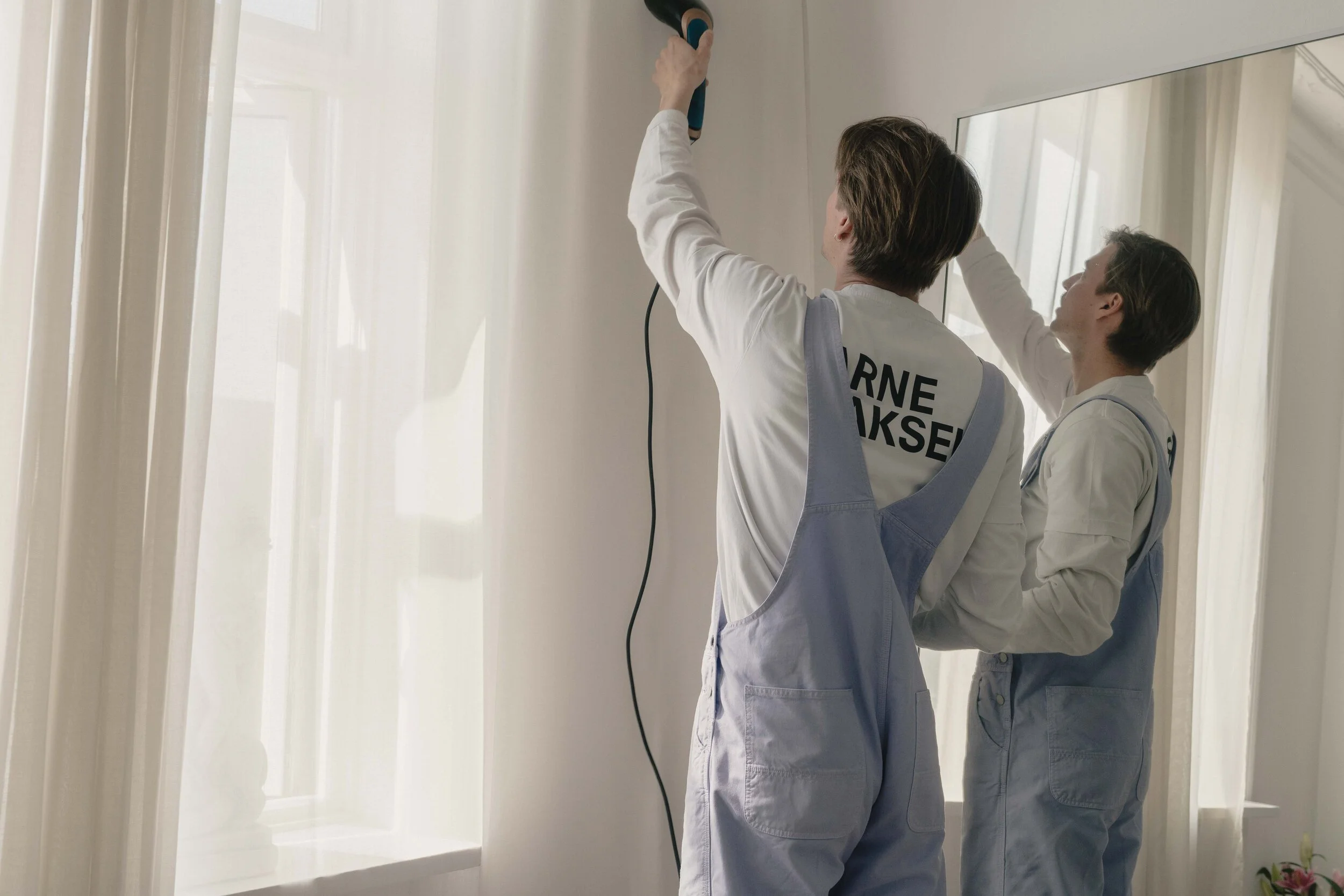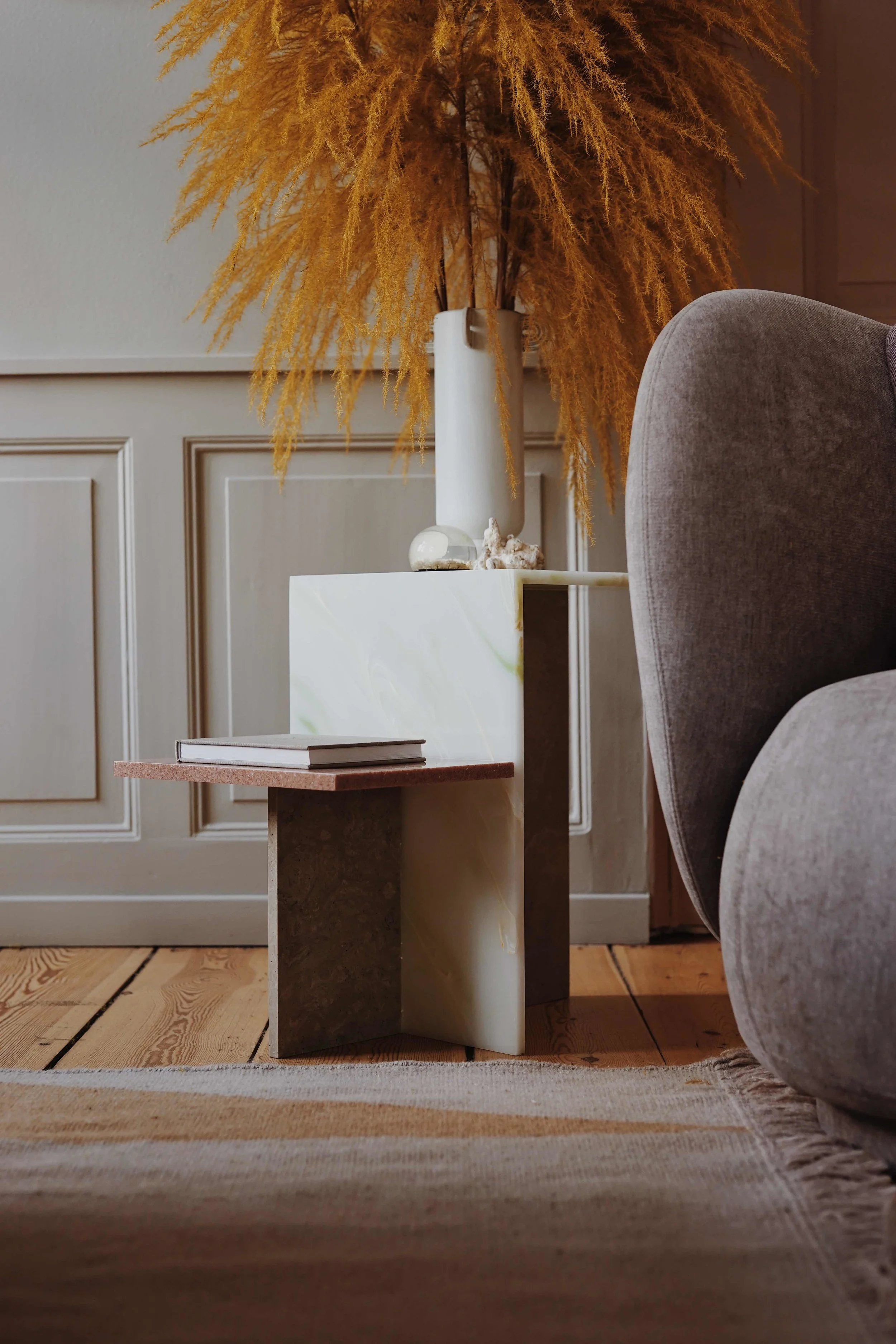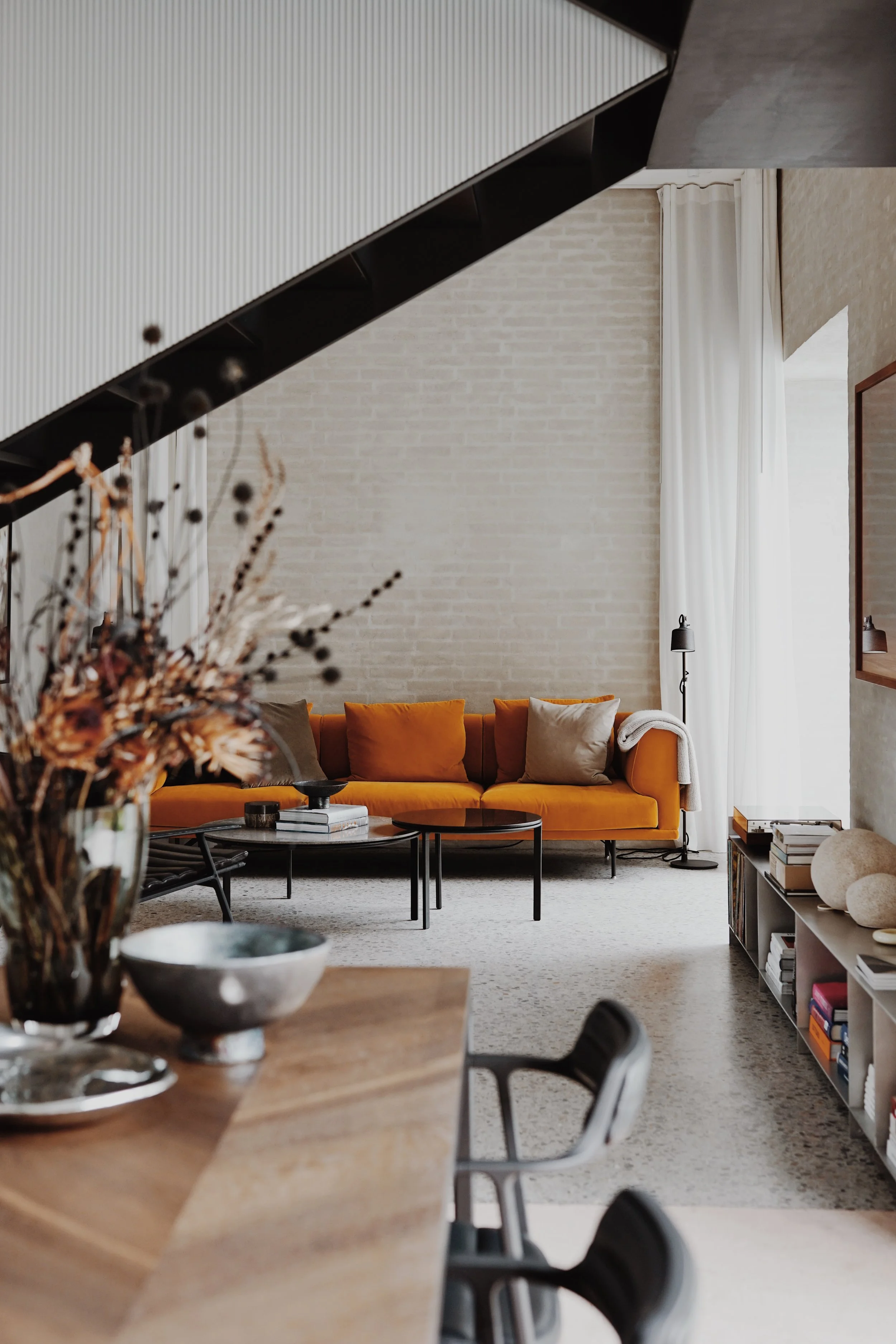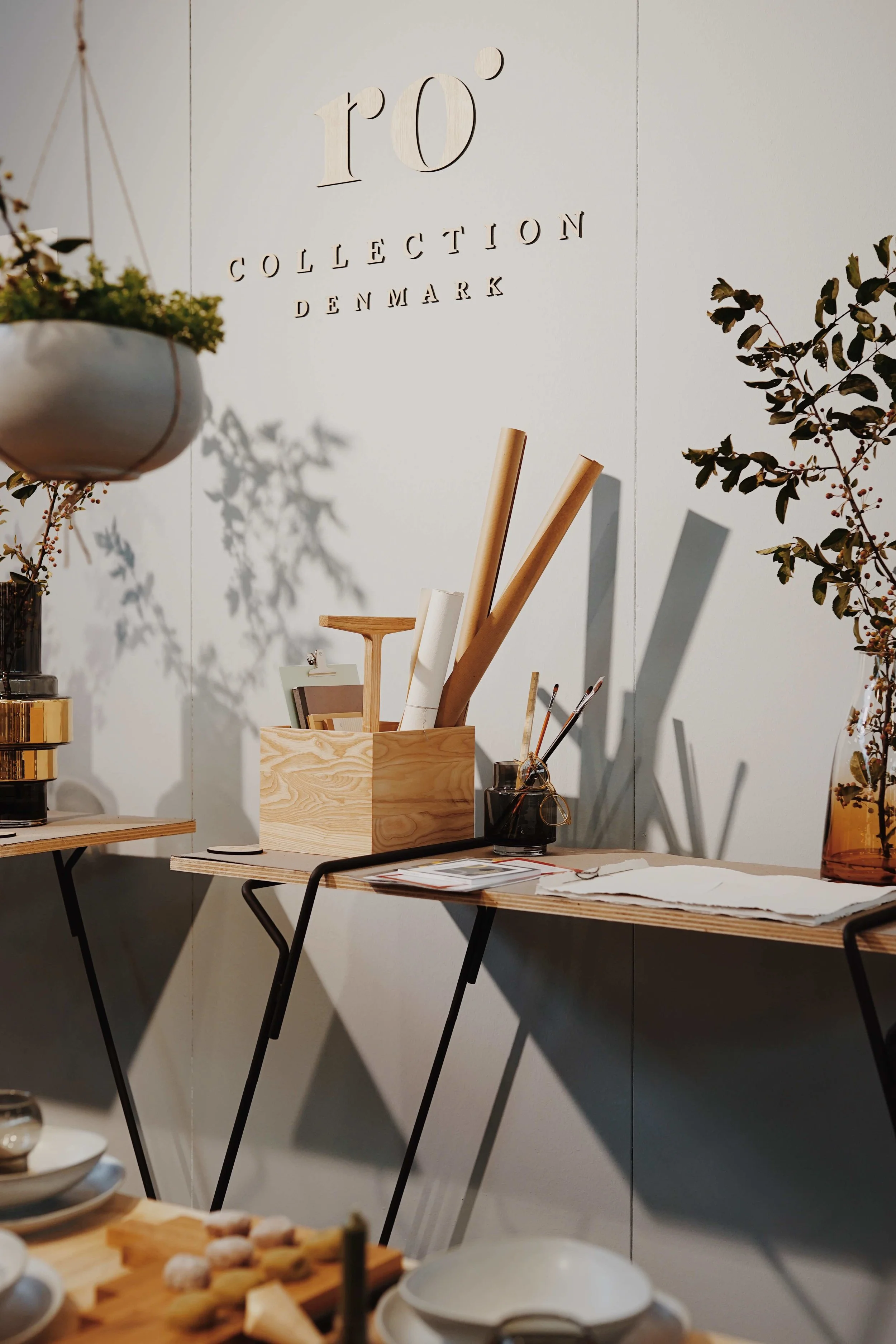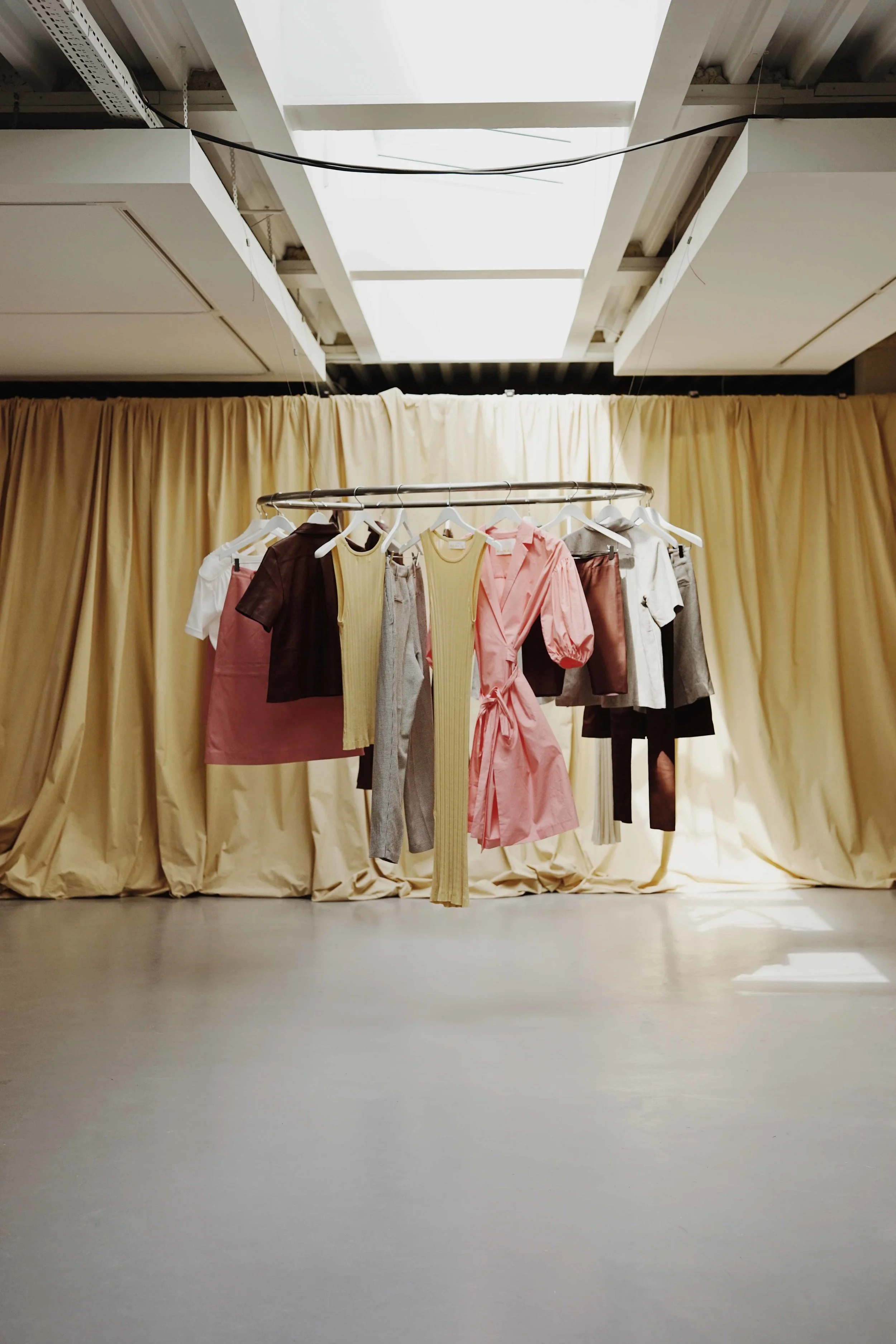Sustainability - Preview Formland 2019
Commissioned by Formland
After what seems like a long time away from the keyboard, I am happy to be back at the desk, to share with you some new projects and planned events coming up in the next few months.
I’ve been asked by fellow blogger Allan Torp, from Bungalow5, to join his blogger tour at this years Formland together with a lovely group of people.
Formland is a Danish interior design and furniture fair, showcasing news from the AW19 season. Formland takes place on the 15th-18th of August in Herning, Denmark. I have never had the chance to go before, so I am very excited to experience it with my own eyes this year, although Instagram has served as a great way of keeping track.
I’ve named this post with the magic green word ‘Sustainability’. I believe it will be one of those things brands are making a huge effort to work about these days. And because I believe this is an important step to take for the design industry, as for the fashion industry.
I want to highlight a few brands that I admire for their way of integrating sustainability, as part of their brand DNA. Also, I want to mention brands that I have high expectations of, when it comes to creating a more eco-friendly range.
Pictured above, Woud
Humdakin
Calm, clean and consistent. Those three words shaped Camillas upbringing and later, her company mantra. Camilla is the power plant behind Humdakin and I love how personal this brand feels. I hear Camillas voice everytime I read about their products, and I can’t help but love this brands’ authenticity.
This autumn they’re introducing new products to their range, including three new colours in their textile collection, both for the kitchen and bathroom; Sunset, Mushroom and Sea Blue. The colour of the latter ones are almost self-explanatory, being an earthy brown and a dark ocean blue. ‘Sunset’ is a warm, dusty dijon mustard yellow. It should come as no surprise to you, that this is the colour that I am most excited about. All of their textiles are made from 100% organic, GOTS certified cotton.
Humdakin is however most known for their range of cleaning products. They are gentle on the skin, and therefore also gentle on the planet. Their products have been dermatologically tested, and there are no parabens, dyes, essential oils or chemical scent/perfume in them. No endocrine disrupting substances or carcinogens - all of the above making it an allergy-friendly range. There really is no need to use harsh products and rubber gloves in order for your home to shine.
SUSTAINABLE FACTS
Textiles are made from 100% organic, GOTS certified cotton
Scented candles consist of a non-toxic wax blend, made with 100% natural and sustainably sourced ingredients
Cleaning products are allergy-friendly
Recycled PET plastic used for their packaging
Bamboo and mango tree used in their wood products
Vegan and cruelty-free
Træfolk
Træfolk is a Danish brand, founded by two guys with a passion for wood and furniture making. The two combined and a functional wooden dining table was made, kickstarting their venture.
Træfolk are very environmentally aware when it comes to sourcing and production. They have their own production site in Denmark, where they produce all of their furniture. They aim for zero waste, and use all remaining off-cuts to make small trays and cutting boards - upcycling what would, in most places, go to waste. On that note, Træfolk are only working with FSC-certified wood.
So let’s get that abbreviation straight:
FSC stands for The Forest Stewardship Council and is an international non-profit, multi-stakeholder organisation that promotes responsible management of the world's forests. The FSC does this by setting standards on forest products, as well as certifying and labelling them as eco-friendly.
There are only few furniture makers that brand themselves on the notion of ‘local’. We’ve heard this many times before in the food world - foraging in ones nearby surroundings for edible greens or growing your own vegetables in the garden without them ever having seen a truck or a sheet of plastic. But not all consumers or people buying new furniture for their homes, are raising the question as to where their new chair has been made. Well, it’s actually more about the correlation between the origin of the sourced wood and the location of the production site. If these are close by, it can be labelled as ‘local’. If a chair has been made in China with wood from Germany, frankly, the correlation is no longer to be found on the sustainability grid.
SUSTAINABLE FACTS
FSC-certified wood
Zero waste work ethic
Care By Me
I stumbled upon this brand as I was looking into the so-called ‘Soap Nuts’. I loved this alternative to washing powder and they had me at that. Caring for the goods or the clothing items you have, is a way for them to have a longer life, meaning that you will consume less fast-fashion items. They promote quality over quantity, also in their range of textiles.
Little had I heard about these soap nuts, and not a lot of places sell them. So let me just briefly tell you about these genius berries. Because, as a matter of fact, they are berries from a very special tree species. They’ve been dried out and you’re using the shells to wash with. As they come in contact with water at 30-60 C (86-140 F), they release saponin. They will last roughly 4-5 washes.
These soap nuts are 100% organic and offer a great alternative to synthetic laundry detergents. Free of harsh chemicals. And they’re made in Nepal. Which brings me to the next thing I appreciate Care By Me for - they are working with Nepali women, supporting their artisan skills and keeping the small workshops alive. They do the knitting on needles by hand, on old-fashioned manual knitting machines, and weaving is both manually and semi-automatically.
SUSTAINABLE FACTS
Soap nuts are 100% organic, biodegradable, non-toxic and odorless
Supporting women and artisan craftmanship in developing countries
Their textiles are made of natural fibres only (cashmere, wool and cotton)
Ordinary Things
There are quite a few places out there working with 100% linen garments. And I love that they do. This is why I am very excited to see what this Danish brand has to show. I know that they are using GOTS-certified fabric, but I’d like to know how they colour their garments, and whether they are working with natural dyes.
Woud
I enjoy their designs, and their way of embracing this dark, minimalism in their mood and in their designs. Woud, you almost want to just pronounce it wood, and with that being said I hope that they up their FSR-certified game very soon - it would really suit their branding.
Lillerød
I’m all in when it comes to supporting family businesses. And these baskets are so delightful. A traditional craft, that has taken it’s turn around many Scandi homes this year and the previous. So simple and with a natural look to them.
The Organic Company
Organic, GOTS-certified. Yes, the name reveals that. But they do some really great things with the cotton, like this lunch bag pictured below. I of course also spotted the Suminagashi marbled plate and smiled.
Broste
Broste are proud to of their Nordic Ecolabel, and they items that are using GOTS-certified cotton. Although they are still not there, they are really doing their best these days with ways of becoming more sustainable, and I trust they will get there. I am super excited to see what colours they will be presenting for AW19, as I loved the colour scheme for SS19. I’ve seen some aubergine purple and forest green. But let’s see.
Paid partnership with Formland. Thoughts and opinions are 100% my own.











